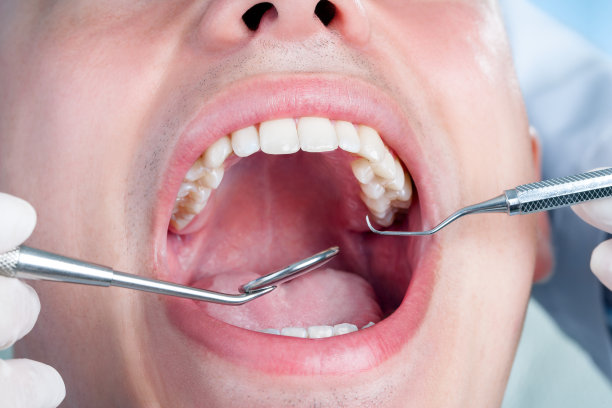Understanding the Impact of Periodontal Disease on Overall Health and Its Prevention Strategies for Better Oral Care
Summary: Periodontal disease has emerged as a significant health concern, influencing not just oral health but also overall well-being. This article delves into the various impacts of periodontal disease on systemic health, exploring its links to conditions such as cardiovascular disease and diabetes. Further, the article highlights effective strategies for prevention, emphasizing proper oral hygiene practices, the role of regular dental check-ups, and lifestyle adjustments. Through understanding the relationship between periodontal health and systemic diseases, individuals can make informed choices to enhance their oral care and overall health. This exploration ultimately advocates for proactive measures in maintaining periodontal health, given its far-reaching effects on overall bodily function.
1. Connection between Periodontal Disease and Systemic Health

The relationship between periodontal disease and systemic health is increasingly recognized in the medical community. Research has identified that gum disease can contribute to various systemic conditions, including cardiovascular diseases. Inflammation caused by periodontitis can lead to the thickening of arterial walls, ultimately elevating the risk of heart attacks and strokes.
Additionally, studies suggest that individuals suffering from periodontal disease are at a higher risk of developing diabetes. The connection is bi-directional; not only can diabetes exacerbate periodontal issues, but chronic inflammation from periodontal disease can also complicate blood sugar control, making diabetes management more challenging.
Moreover, the impact extends to respiratory health as well. Inhalation of bacteria from inflamed gums can lead to infections in the lungs, potentially aggravating conditions like chronic obstructive pulmonary disease (COPD). This highlights the far-reaching consequences of neglecting oral health.
2. Importance of Early Detection and Regular Check-ups
Early detection of periodontal disease is crucial for effective management and treatment. Regular dental check-ups allow for the identification of early signs of gum disease, such as gum redness, swelling, and bleeding. These initial indicators can be addressed promptly, preventing further progression to advanced stages of periodontal disease.
Routine visits to the dentist are vital as they facilitate professional cleanings and assessments. During these appointments, dental professionals can also educate patients on effective oral hygiene practices tailored to individual needs. This ongoing education can empower patients to take charge of their oral health.
Moreover, maintaining a consistent schedule for check-ups builds a relationship between the patient and their dental care provider, fostering an environment where patients feel comfortable discussing their concerns and seeking treatment when necessary. Regular monitoring ensures that any changes are noted, leading to earlier interventions.
3. Preventive Strategies for Maintaining Oral Health
Effective preventive strategies are essential for reducing the risk of periodontal disease. Proper oral hygiene—brushing at least twice a day and flossing daily—forms the foundation of good dental care. These practices help remove plaque and food particles, significantly decreasing the likelihood of gum disease.
Moreover, dietary choices play a pivotal role in oral health. A diet rich in vitamins, minerals, and antioxidants supports gum health. Foods like leafy greens, berries, and nuts can enhance the body’s immune response, helping to fight inflammation. Avoiding excessive sugary snacks and beverages also diminishes plaque buildup that can lead to gum disease.
Lastly, lifestyle choices such as quitting smoking and managing stress can significantly impact oral health. Smoking not only inhibits blood flow to the gums but also decreases the immune response, making it difficult for the body to fight off infections. Stress management techniques can also help by reducing inflammation throughout the body, including the gums.
4. The Role of Patient Education in Oral Care
Patient education is vital in the prevention and management of periodontal disease. Increasing awareness about the signs and symptoms of gum disease empowers individuals to seek timely help. Educational resources can provide insight into the importance of oral health in connection with systemic health, highlighting the overall benefits of maintaining healthy gums.
Furthermore, educational initiatives can promote effective self-care practices. Workshops, informational pamphlets, and digital content can equip patients with knowledge on proper techniques for brushing and flossing, as well as the significance of routine dental visits.
By fostering a culture of dental awareness, healthcare providers can motivate patients to be proactive rather than reactive when it comes to their oral care. This proactive approach not only aids in the prevention of periodontal disease but also supports better overall health.
Summary:
In summary, the profound impact of periodontal disease on overall health necessitates a comprehensive understanding and approach to prevention. Emphasizing the importance of dental check-ups, proper hygiene, and patient education can significantly reduce risks associated with gum disease and its systemic implications. By prioritizing oral health, individuals can promote wellness that transcends beyond the mouth.
This article is compiled by Vickong Dental and the content is for reference only.



